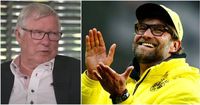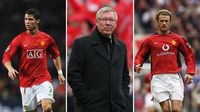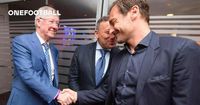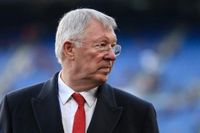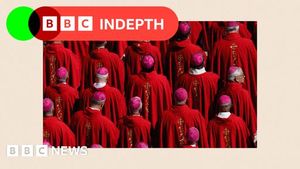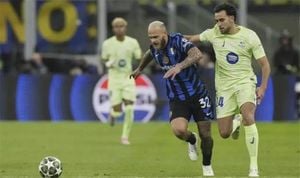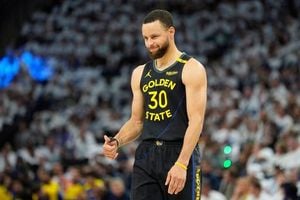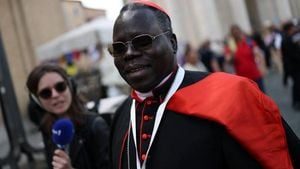Manchester United fans are experiencing a mix of hope and frustration as the club grapples with its identity in the light of a tumultuous transition period following Sir Alex Ferguson's retirement. From the successful era of the late 1980s through the 1990s, where Ferguson led the team to an astonishing 13 league titles, his departure in 2013 marked the beginning of a challenging chapter for the Red Devils.
The decline in on-field performances can be traced back to the moment Ferguson hung up his managerial coat, a pivotal turning point that has left many to ponder the consequences of his absence. The legendary manager’s retirement signaled the end of an era defined by dominance and consistency, a stark contrast to the instability that followed when David Moyes was brought in as his successor. According to reports from March 18, 2025, Ferguson had earmarked several potential candidates to replace him, yet the appointed Moyes seemed out of his depth in this demanding role.
During his time there, Moyes struggled under the weight of expectations that came with inheriting a behemoth of English football. However, it would be an oversimplification to lay the blame solely at his feet; plenty of other eminent managers followed and similarly faltered, which indicates a deeper-rooted issue within the club.
Ferguson reflected on this in his autobiography, mentioning five managers who were considered for the role after he stepped down, including Louis van Gaal, Jose Mourinho, Jurgen Klopp, Carlo Ancelotti, and Pep Guardiola. When Van Gaal took over in 2014, fans hoped his reputation could help restore the team's former glory, but despite reaching fourth and fifth in his two seasons and clinching the FA Cup, his time was largely viewed as marked by inconsistency.
Mourinho subsequently replaced Van Gaal, but his time at the club was equally as tumultuous. Despite saying its second-place finish under his leadership in the Premier League was one of his best achievements, the reality was that United stagnated under his guidance. Interestingly, Ferguson had sought Mourinho as a successor much earlier, but timing and commitments hindered that transition. Had the paths aligned, perhaps United would have benefited more from Mourinho's managerial acumen during his prime.
Moreover, the specter of what could have been if Klopp had arrived at United instead of Liverpool loomed large, especially given the dramatic shifts in fortune both clubs experienced post-Ferguson. Klopp had just led Borussia Dortmund to the Champions League final in 2013, and Ferguson had circled his name as a potential candidate to lead United. However, Klopp’s newfound success at Anfield ultimately reshaped the rivalry.
In hindsight, Guardiola’s decision to join Bayern Munich instead of Manchester United, despite Ferguson’s overtures for him to reach out before accepting his next job, has perhaps been cited as a major missed opportunity. Since joining City, Guardiola has built a juggernaut that has redefined expectations in English football, further highlighting the chasm that has developed between United and its former benchmarks of success.
The right player signings can be just as vital as managerial appointments in crafting a successful team, and Ferguson pointed to several key arrivals during his tenure that invigorated the club. In a 2011 interview with ESPN, he attributed a significant turnaround at United to the signings of Steve Bruce, Gary Pallister, and Peter Schmeichel during his early years at the club. Each contributed to stabilizing the defensive unit, setting the foundation for the era of dominance that followed.
Ferguson’s intuition about player partnerships extended into the future as well. Expressing hopes for Chris Smalling and Jonny Evans as the center-back pairing of the future, he noted the importance of foundational partnerships akin to those he had established with Bruce and Pallister. Ferguson emphasized, “When we got Peter Schmeichel, Steve Bruce, and Gary Pallister, it was an incredible turnaround in consistency.”
Yet, the post-Ferguson era has seen United misstep in the transfer market on multiple occasions. Fans have lamented high-profile signings that have failed to deliver on expectations, again proving that the right players in the right roles can create a substantial shift in a club's fortunes.
To add a touch of present-day relevance, Manchester United's recent resurgence with impressive wins against Real Sociedad and Leicester City has fans cautiously optimistic. Still, a clear and defined approach in the upcoming transfer window is crucial if the Red Devils wish to re-establish their dominance in English football.
As the team prepares for the future, the lessons from Ferguson’s era—both good and bad—will undoubtedly shape the club's next steps. Historical context matters, and if Manchester United remembers the rationale behind Ferguson’s choices, they may yet find a route back to the summit of world football.
United's recent trajectory, combined with the right decisions in management and signings, could fuel the resurgence many fans long to witness with their storied club. With Ferguson’s ethos still echoing in the corridors of Old Trafford, it remains to be seen whether the next chapter might finally reveal a rebirth of Manchester United’s former glory.
